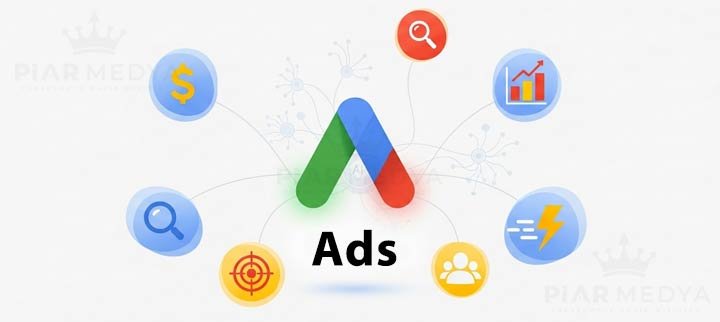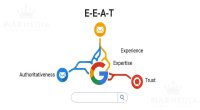AI-Powered Google Ads: The Future of Advertising Strategy
Get more from your ad spend. Learn the core principles of AI-powered Google advertising and why professional agency support is crucial. You will find answers to all your questions related to topic AI-Powered Google Ads: The Future of Advertising Strategy in the continuation of the text.

Use Your Ad Budget Efficiently: AI-Powered Google Ads
Why Does Google Ads Need Artificial Intelligence?
AI Features in Google Ads: Step-by-Step Automation
1. Smart Bidding Strategies
2. Responsive Search and Display Ads
3. Dynamic Search Ads
How Does AI Increase Your Ad Budget's Efficiency?
Is This Automation Enough? Why the Professional Touch is Vital
When managing your Google Ads campaigns, do you feel lost among thousands of keywords, audience segments, and bidding strategies? Do you feel that the time you spend on manual optimizations isn't delivering the results you want? This is where the future of digital advertising, AI-powered advertising, comes into play.
Today, artificial intelligence is transforming Google Ads from just an advertising platform into an intelligent marketing engine that maximizes profitability for your brand.
In this guide prepared by the Piar Medya team, you'll discover how AI is fundamentally changing Google advertising, how to use your ad budget most efficiently, and why the professional touch behind this technology is still vital.
Use Your Ad Budget Efficiently: AI-Powered Google Ads
How does artificial intelligence work in Google Ads? Let's explore how to use your ad budget most effectively with smart bidding strategies and responsive ads:
Why Does Google Ads Need Artificial Intelligence?
Google Ads processes billions of search queries and user data points every day. It's physically impossible for a human ad manager to manually analyze this massive amount of data to determine the right bid for every keyword, find the most relevant audience, or test the best ad combination. Artificial intelligence was developed to manage this complexity. Machine learning algorithms can make thousands of optimization decisions in seconds using real-time data.
AI Features in Google Ads: Step-by-Step Automation
The Google Ads platform utilizes AI at many different levels to offer significant advantages to advertisers:
1. Smart Bidding Strategies
Smart Bidding strategies automatically set bids for each auction based on your campaign goals (e.g., conversions, clicks, visibility). With strategies like "Target CPA (Cost Per Acquisition)" or "Target ROAS (Return On Ad Spend)," it becomes much easier to lower your CPC and find customers at a low cost.
2. Responsive Search and Display Ads
Responsive ads are one of the most visible features of AI. You provide several different headlines and descriptions; Google's AI continuously tests which combination performs best for which user and automatically optimizes your ad. This eliminates the time spent on manual A/B testing.
3. Dynamic Search Ads
This dynamic ad type crawls your website's content and automatically generates the most relevant headline and landing page for a user's search query. It goes beyond traditional advertising, allowing brands to be visible even for keywords they had never considered.
How Does AI Increase Your Ad Budget's Efficiency?
AI directly impacts your return on investment (ROI) by optimizing your ad budget to the highest degree:
- Advanced Targeting: AI goes beyond demographic data to analyze user behaviors, interests, and intent. This ensures your ads are shown to the right people at the right time.
- Real-Time Optimization: While a human might check a campaign a few times a day, AI can make thousands of optimization decisions in seconds. This is the biggest advantage for Google Ads optimization.
- Time Savings: AI takes over manual and repetitive tasks, allowing marketers to focus on strategy, creativity, and other more critical work.
Is This Automation Enough? Why the Professional Touch is Vital
Artificial intelligence is a tool, not a strategist. Even the most advanced AI cannot understand a business's core objectives, brand identity, or niche market dynamics. Therefore, working with a professional Google Ads agency is still critically important:
- Strategic Setup: It is the human strategist who provides the AI with the right data and the right goals. Critical decisions, such as which bidding strategy to use, which audience is most profitable, and how to write ad copy, still require human expertise.
- Creativity and Judgment: AI can find the best headline combination, but it cannot write the best headline. A human expert understands the brand's voice and customer psychology, adding a creative touch to ad copy and visuals.
- Holistic Approach: Advertising is just one piece of the marketing puzzle. An experienced agency will handle your ad campaigns holistically, integrating them with all your digital marketing strategies, from SEO to web design.
In conclusion, while AI is an excellent assistant for using your budget effectively when running ads, it is still just a tool. To use this tool correctly, achieve maximum efficiency, and create targeted ad campaigns, you will always need the expertise of an agency.






